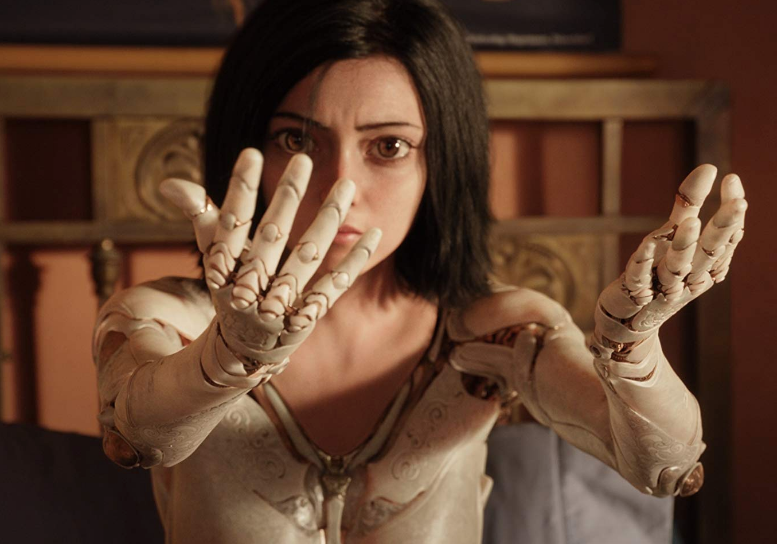Review: Alita: Battle Angel
- Feb 10, 2019
- 3 min read

Impressive and ho-hum in equal measure, Alita: Battle Angel is one of the more relatively successful film adaptations of a manga series, in this case, Yukito Kishiro's Gunnm, also known as Battle Angel Alita. Originally meant to be directed by James Cameron, who sparked to the project after it was brought to his attention by Guillermo del Toro, it was eventually handed over to Robert Rodriguez after Cameron prioritised the development of other projects such as Avatar.
Rodriguez certainly injects a great deal of brio in this visually impressive but bloated and derivative behemoth of a film, which is reminiscent of Blade Runner, Ghost in the Shell, Rollerball, The Hunger Games, Twilight, and about a dozen or more works. Set in the year 2563, some three centuries after a catastrophic event known as "The Fall," the film takes place in the scrapyard metropolis known as Iron City. The title character, appealingly played by Rosa Salazar, is the creation of Dyson Ido (Christoph Waltz), a kindly doctor who specialises in building and repairing half-human cyborgs by using scavenged parts. Ido has married Alita's head with its fully intact brain to the body he created for his deceased daughter. Alita has no recollection of who she is, though viewers can already intuit that she is not as innocent as she looks.
Indeed, Alita possesses fierce combat skills, which she puts to relatively innocuous use playing street motorball, a fusion of basketball and roller derby that is Iron City's favourite sport. The professional version, run by the coolly sinister Vector (Mahershala Ali) and Ido's ex-wife Chiren (Jennifer Connelly), is a more brutal and gladiatorial version in which heavily modified cyborgs battle each other to the death. As in The Hunger Games and others of its ilk, Alita's destiny lies in surviving and triumphing over this bloody sport, that is if she can overcome the various other obstacles thrown her way.
For a time, Rodriguez succeeds in distracting viewers from the overstuffed and cluttered narrative. The animation and visual effects created by Peter Jackson's Weta Digital are breathtakingly done, and certainly the film is at its most satisfying when it fully embraces style and spectacle rather than fumbling for substance. The motorball sequences are dazzlingly done as are the fight scenes between Alita and the various cyborg assassins and bounty hunters that she encounters. Among the most memorable: Jackie Earle Haley's Grewishka, who seems comprised of steroids upon steroids; Eiza González's bladed and spider-like villainess Nyssiana, and Ed Skrein's bounty hunter Zapan, who could be Robocop's pretty boy brother.
Unfortunately, the film truly and heavily flounders when it moves away from the action. When three Oscar winners (Waltz, Connelly and Ali) struggle to make the dialogue sound remotely, generically interesting, then there's something inherently wrong with the way it's written. At least, they don't have to do the heavy lifting. Salazar does well enough, but viewers have to contend with the drippy romance between Alita and blander-than-bland love interest Hugo (Keean Johnson). One wishes the razzle-dazzle had been combined with more depth and vivid characters as the best blockbusters are well-aware that all the technological trickery in the world doesn't matter if the film doesn't have heart. Both Cameron and Rodriguez's previous works bear this out, so it's a mystery as to why there's no genuine emotional underpinning to this bombastic orgy of state-of-the-art showmanship.
Alita: Battle Angel
Directed by: Robert Rodriguez
Written by: James Cameron, Laeta Kalogridis; based on Gunnm by Yukito Kishiro
Starring: Rosa Salazar, Christoph Waltz, Jennifer Connelly, Mahershala Ali, Ed Skrein, Jackie Earle Haley, Keean Johnson, Lana Condor, Jorge Lendeborg Jr., Idara Victor, Jeff Fahey, Eiza González, Rick Yune, Casper Van Dien

Comments